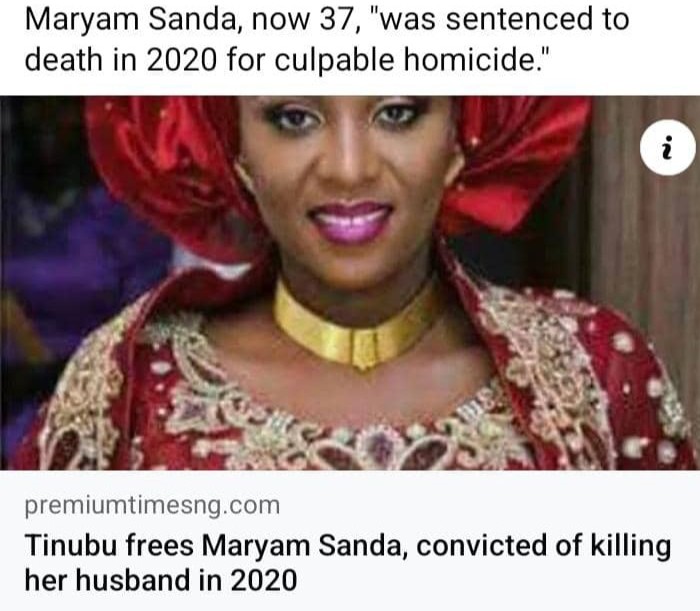Following President Bola Ahmed Tinubu’s recent grant of clemency to 175 inmates — including Maryam Sanda, convicted for killing her husband, and others found guilty of crimes such as drug trafficking, murder, and illegal mining — human rights advocates, legal experts, and international partners have renewed calls for the Federal Government to abolish the death penalty.
The appeal came during the 2025 International Day Against the Death Penalty event in Abuja, organised by ASF France, the German Embassy, and the Australian High Commission, where stakeholders stressed the need for justice reform and humane sentencing.
Meanwhile, the Clemency of Maryam Sanda has sparked a lot of controversy and debate as to the justification of release of most of these convicts only on the basis that they have shown remorse over the past few years for the crime committed.
Speaking at the event, Country Director of ASF France, Angela Uzoma-Iwuchukwu, highlighted Nigeria’s progress on death penalty reform.
ASF France marked the occasion celebrated every October 10, with the screening of the movie ‘Just Mercy’, a true-life story following Bryan Stevenson, a young Black lawyer and Harvard graduate who moves to Alabama to defend people wrongly convicted or too poor to afford proper legal help.
She noted that the country has gone nine years without carrying out executions, with the last execution recorded in 2016 in Edo State.
She said the next critical step is for the government to declare an official moratorium on executions, moving beyond the current de facto abolition status.
“We have made some progress regarding the death penalty in Nigeria. One of the key achievements is that we have gone nine years without execution in Nigeria. That is definitely something to celebrate.
“The immediate next phase is a moratorium on the death penalty, a period where there can be an official pause against execution while laws regarding the death penalty are being considered,” Uzoma-Iwuchukwu explained.
According to Uzoma-Iwuchukwu, one of the things they have learned representing persons facing death penalty, providing free legal services and other support, is that the death penalty punishment protects no one and has shown that it is used disproportionately against the most vulnerable in society.
“The stories are the same. Our clients are subjected to the worst form of torture, cruel, inhuman and degrading treatment. And this is always because we have the mandatory death penalty in Nigeria. That simply means that Nigeria is one of the countries where there are certain crimes that the law says must be punished by death,” she stated.








